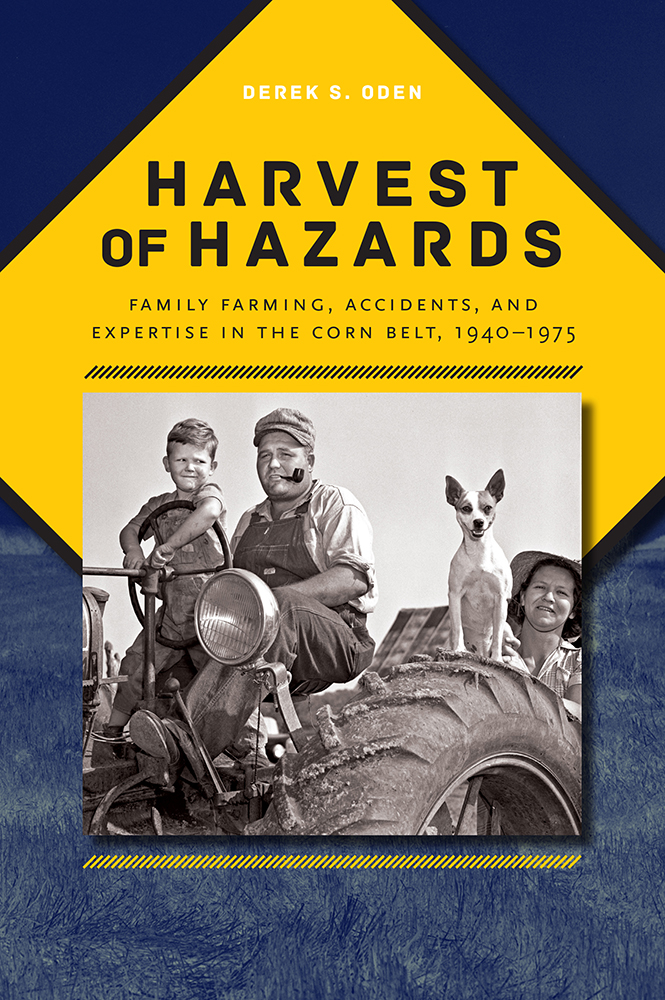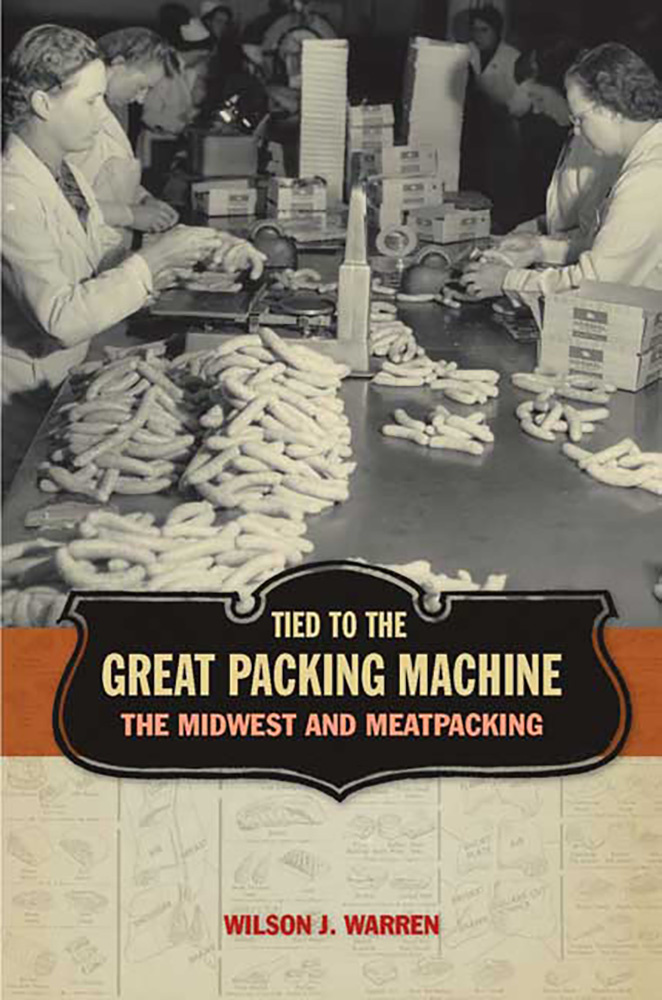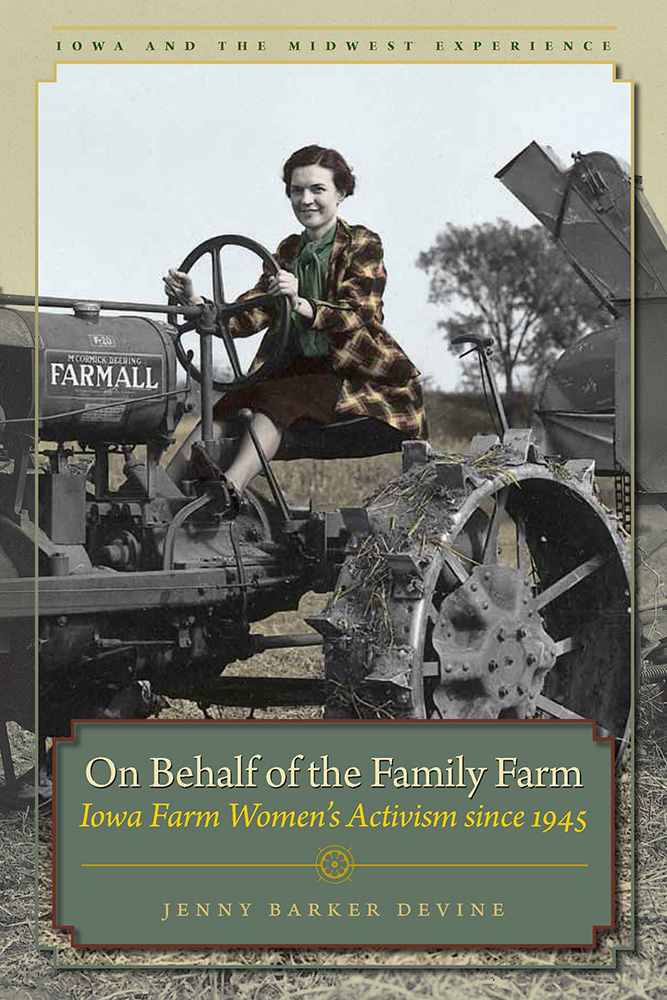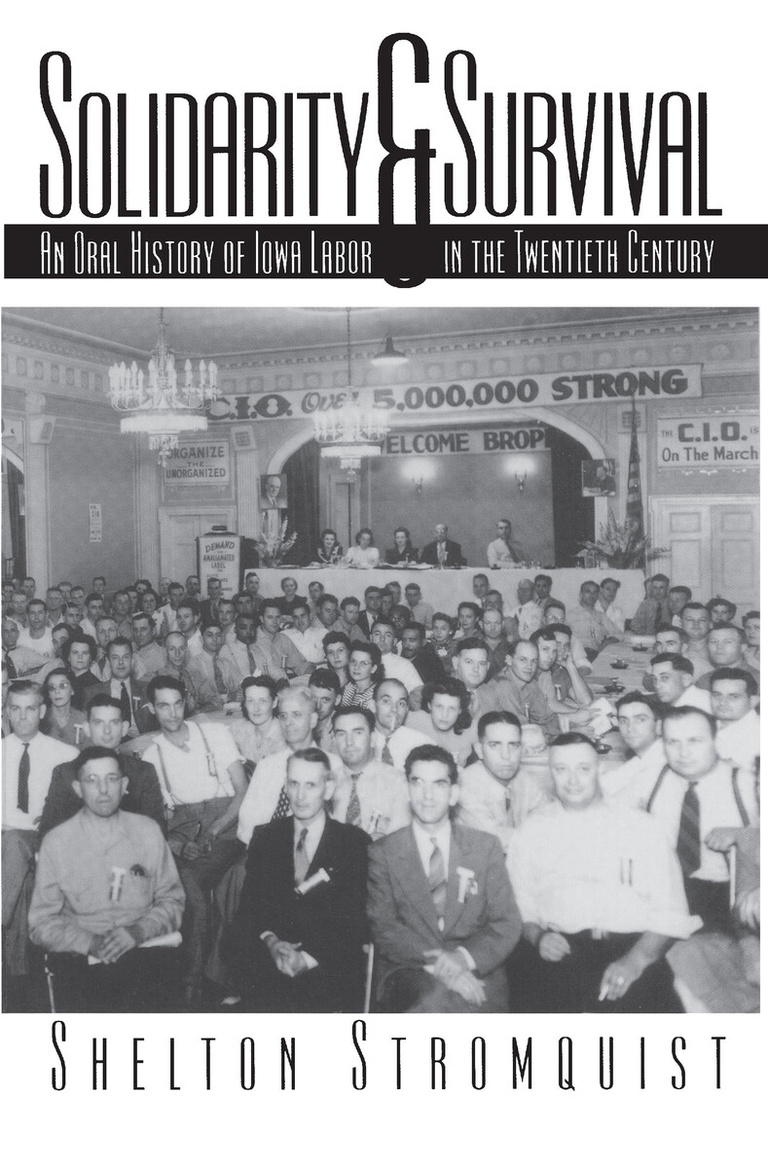Benjamin F. Shambaugh Award honorable mention
Farming has always been a dangerous occupation. In the middle of the twentieth century, as farmers adopted a wide array of new technologies, from tractors to pesticides and fertilizers, the dangers became more acute. The economic pressures that agriculture faced in this period compounded the perils of these powerful new tools, as farmers struggled to stay profitable in the face of widespread consolidation.
In this study of the farm safety movement in the Corn Belt, historian Derek Oden examines why agriculture was so dangerous and why improvements were so difficult to achieve. Because farmers were self-employed business owners whose employees were mainly family members; because they lived far from aid such as hospitals and fire stations; and because they had to manage such a diverse array of new technologies, they could not easily adopt the workplace safety and public health reforms designed for factories and urban settings. In response, beginning in the 1940s, farmers and a new breed of farm safety specialists relied upon an increasingly elaborate educational campaign to lessen injuries and illnesses on the farm.
Several government, business, and nonprofit organizations—from the US Department of Agriculture to the National Safety Council and 4-H and the Future Farmers of America—worked together to publicize both the dangers of farming and the information farmers needed to stay safe while driving tractors, applying anhydrous ammonia, or repairing machinery. By the 1960s, however, the partnership began to break down, and by the 1970s the safety movement became increasingly contested as professional and policy divisions emerged. This groundbreaking study incorporates agriculture into the histories of occupational safety and public health.
“Harvest of Hazards is original, with a strong contribution to the fields of agricultural history, and relevance for the fields of history of technology, labor, and postwar America.”—Kendra Smith-Howard, author, Pure and Modern Milk: An Environmental History since 1900
“A useful, wide-ranging study that for the first time brings together the rather scattered literature about farm safety and discusses it in a historical context.”—R. Douglas Hurt, author, Food and Agriculture during the Civil War
2018 Benjamin F. Shambaugh Award Honorable Mention



